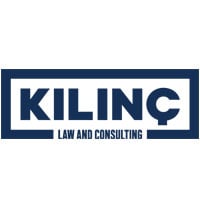

Chief legal officer | NEF-Timur Gayrimenkul Geliştirme Yapı ve Yatırım



Meryem Sövüt
Chief legal officer | NEF-Timur Gayrimenkul Geliştirme Yapı ve Yatırım
Team size: Six
What has been the number one challenge that has impacted you over the past year?
The increase in exchange rates caused the most significant impact on our company in the last year. Many basic materials in the construction sector, such as iron and aluminium, are indexed in foreign currency. The increase in the exchange rate also negatively affected the purchases of such materials. The companies that we contracted also had difficulties in supplying goods and wanted to reflect exchange rate differences and labour prices. Consequently, since our main job and goal is to complete the construction and deliver it to the customer, we had to pay extra to these companies. Since these additional payments were not included in the price of the sales contract with the customers, we had to cover them with our equity. This was the biggest challenge in our industry last year.
In your opinion, what areas should in-house lawyers focus on over the next few years to prove value to their organisations in Türkiye?
In-house lawyers, in my opinion, should turn to digitalisation and technology as we advance. Many things will be managed digitally soon. In addition, artificial intelligence is also being tested in the legal industry, and hearings are now even held online. Besides this, we should become more generalists —companies are now expanding their activities to include multiple areas; for example, in addition to construction activities, areas such as energy, food, and clothing are being added. We must be knowledgeable in these areas and be open to everything.
Furthermore, we should be up to date with international developments, becoming pioneers in contributing to our fields of activity. We should learn not only our own legal and tax system but also the legal and tax systems of countries suitable for investment. We should guarantee our activities by finding the right business partners and consultants.
Could you share an example of a time when you came up with an innovation that improved how your legal team works and did not come at a large expense?
Our legal team conducts and monitors all its work through various systems. For example, we use a legal programme called ‘teamwork’ to follow up on all cases and lawsuits. All contracts concluded between our company and third parties are also registered in this system. Thus, the contracts’ length, commitments, penalty amounts, and renewal periods are controlled, and risks and extra payments our company could be exposed to are prevented.
The most important documents of our company, such as construction permits and life permits issued by us from official institutions, are recorded in the system called IFS, and the duration and responsibilities of these documents are monitored so that when the time comes, these documents are renewed, and the transactions completed. This allows us to prevent potential damage and risk.